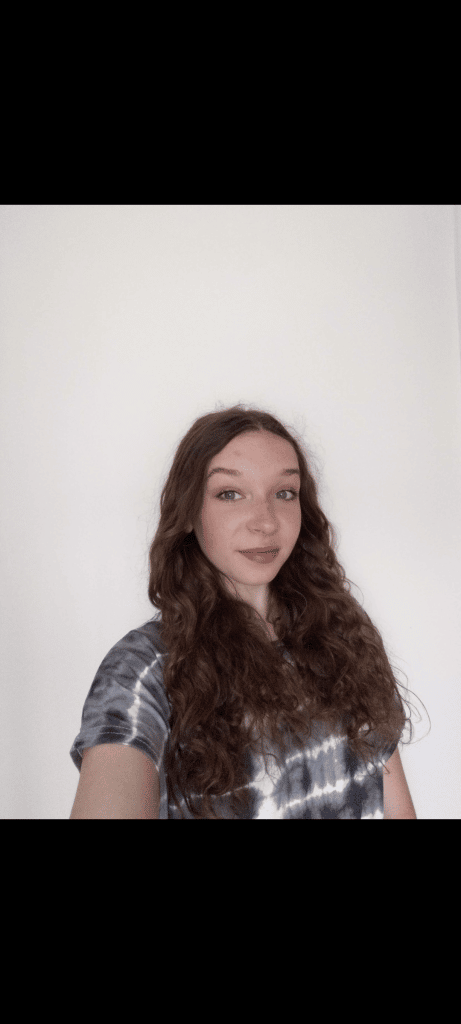
,
Abigail Booth
Student
I applied to the program after I applied to the Hull-York WP program and despite getting rejected from there I was accepted...Tell us a little bit about your background…
I grew up on the edge of the Cotswolds living with my Mum and my older brother. A bit about the Cotswolds? We have some rather funny traditions, such as the World Cheese Rolling Championships, the Asparagus Festival, and the Cotswolds Olimpicks – which includes the famous Shin-Kicking Tournament. Fun fact: one of my part-time jobs was to make asparagus-flavour ice cream with real bits of asparagus in. You can guess which event this was for. My school was rather rural as well, with its own crops, pigs, sheep, and the option of Environmental Land-based Science as a GCSE.
What led you to apply for your programme and what was your experience like?
Based off my favourite parts of my A-Levels, I knew I wanted to study a degree that blended evolutionary biology with social science. The UCAS course list is alphabetical: “Accounting” – no! “Acting” – no! “Anthropology” – what’s that? The subject kept appearing in books and late-night Wikipedia meanderings. My interest grew. However, it felt incredibly risky to head off to university placing all my bets on a subject I’d never formally studied before. So, when I heard that the Sutton Trust were offering low-income students the opportunity to study Sociology and Social Anthropology at Cambridge University, I jumped at the chance.
My week at Cambridge University was game-changing. I absolutely loved the vibe: everyone’s curiosity and passion for the topics. Learning from and discussing human behaviour with world leaders in the field was awe-inspiring. They had so many ideas, so much to share and to ponder. The same went for my fellow summer-school students, who all brought vastly different experiences to the table. Coming from a mono-cultural environment where most people look like me and think like me, meeting students with fantastically diverse backgrounds was so gratifying. Discussing our academic plans together was how I first heard of University College London.
How has your career developed after the programme?
I applied to UCL to study Anthropology with a study abroad year. UCL appealed to me as they had a broad-based course, was ranked fifth in the world for the subject, and – very importantly – was in the centre of London. The city provided the cultural melting pot I desired and many new experiences. I remember (half) joking that even streetlamps were a new experience!
Concerned about London living costs, especially after seeing the typical rent for student halls, I applied to many different scholarship programmes. Fortunately, I won a place on the Lloyds Scholars Scheme. This social mobility programme provided merit-based awards, maintenance grants, and two paid internships with free accommodation each summer. Not to forget the business mentor assigned to each scholar. It was amazing, because it felt like I was getting all the support you’d get if you came from a wealthy family with connections, where parents provided financial support whilst you did unpaid internships and could introduce you to the right people.
Upon returning from my study abroad year in California, I set about applying to 52 different graduate schemes. I was conscious that if I didn’t get a job straight out of university, I would need to move back home to the Cotswolds, where it would be very difficult to get to top employers for interviews. After my internships, I knew that banking wasn’t the right fit for me, but I wasn’t sure which industry was right. This is why Microsoft’s mantra, ‘come as you are, do what you love’, along with the size of the company with the variety of roles and geographies, appealed to me so much. I’m now a Partner Development Manager at the company, where I work with a portfolio of independent software vendors who use Microsoft’s cloud services on which to create their products. They sell these on to our mutual customers, so the better they do, the better we do. It’s my job to help them grow their businesses and I love it.
What are your ambitions for the future?
I’ll start looking for another role when I feel that I need a new challenge. At the moment, I’m really enjoying where I am and I’m still learning so much every day. I don’t have a five-year plan, or anything set in stone, but I’m thinking about the skills I like using and which experiences could allow me to develop those skills further. After gaining so much support from social mobility programmes, I’m also particularly keen to bring others up behind me. I’m currently looking into the existing social mobility practices at Microsoft to see if we could create improvements and access a wider pool of applicants.
Do you have any advice for future Sutton Trust students?
If someone tells you that you that it’s going to be hard, then sure, factor difficulty into your plan, but if you really want it then the grind will be worth it. That’s why it is so important to do something that you’re passionate about, so that you’ll work hard at it and achieve your goals.